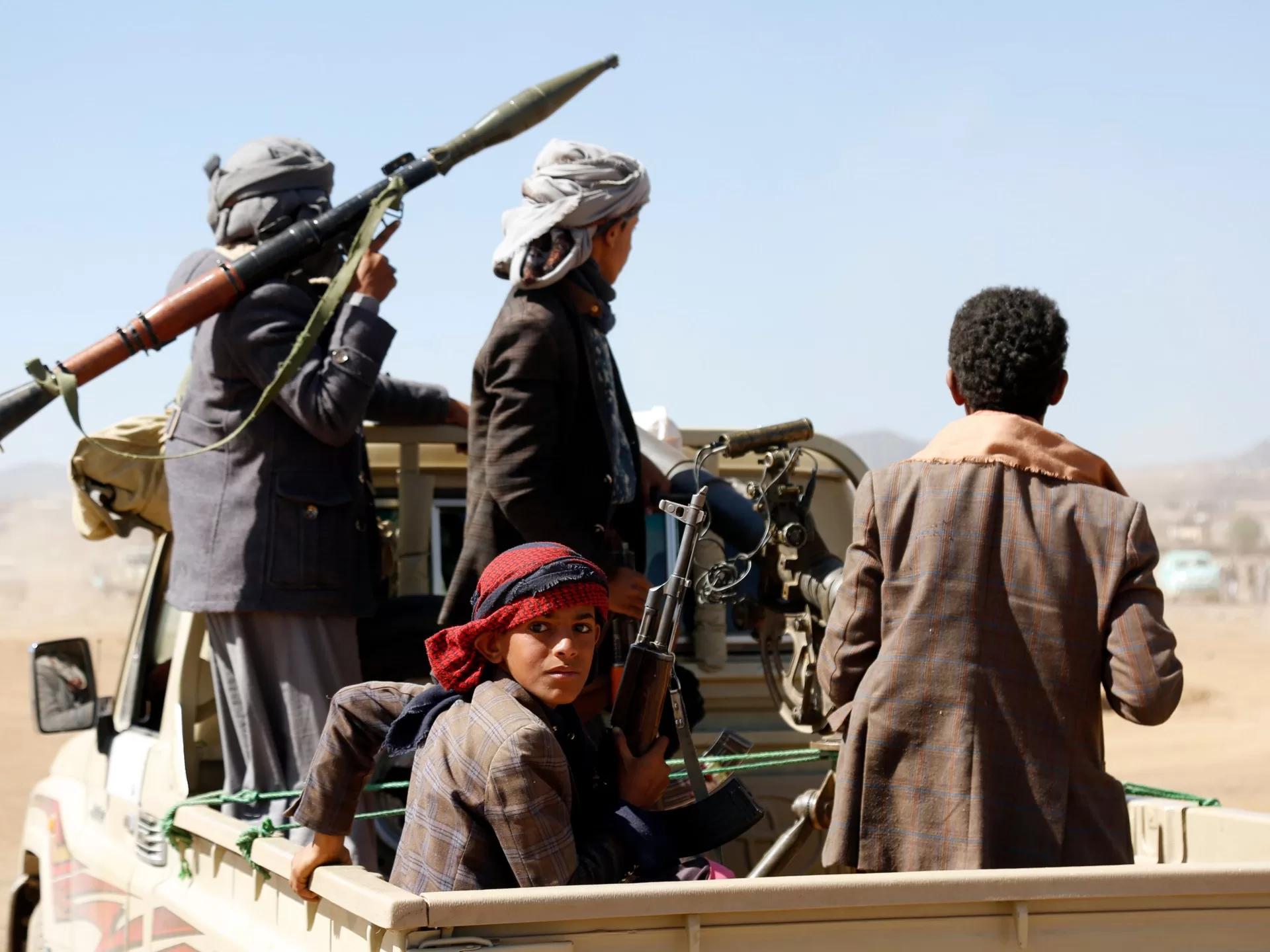A separate UN official expresses fears over how the US designating the Houthis a ‘terrorist’ group may affect Yemen’s economy.
“I am engaging the Yemeni parties and relevant regional actors to support de-escalation in the Red Sea to protect the mediation space in Yemen,” Hans Grundberg told the UN Security Council on Wednesday.
“Three things need to happen in the immediate term to create an off-ramp to this dangerous escalatory cycle,” Grundberg said, calling for regional de-escalation; for all parties to refrain from “military opportunism”; and for progress towards a mediated agreement to be protected.
Yemen’s Houthis have been launching attacks in the Red Sea and Gulf of Aden against ships they said were linked to Israel. The attacks are in solidarity with Palestinians and will not cease until Israel stops its war on Gaza, the rebels said.
But the provocations have prompted the United States and United Kingdom to intervene, launching a series of air raids on targets in Yemen in the hope of deterring the Houthis.
‘Path to peace’
The Iran-backed rebels have been fighting a Saudi-led coalition since 2015, months after they seized the capital Sanaa and most of Yemen’s population centres, forcing the internationally recognised government south to Aden.
As recently as December, painstaking negotiations were gaining ground and the UN said the warring parties had agreed to work towards “the resumption of an inclusive political process”.
The recent Houthi attacks, in addition to Western retaliation, have thrown the peace process up in the air.
However, “in my latest exchanges, I have received assurances that all parties prefer the path to peace,” Grundberg said.
Hundreds of thousands of people in Yemen have died in the fighting and from indirect causes, such as disease and malnutrition. More than 18 million Yemenis need “urgent support”, according to the UN’s humanitarian agency OCHA.
“Yemen is not a footnote to a wider regional story,” Grundberg warned. “The regional escalation does not negate the urgent needs in Yemen for a nationwide ceasefire.”
Al Jazeera’s Gabriel Elizondo, reporting from the UN headquarters in New York, said this was the first time in nearly five months that the Security Council has held an “open” meeting on Yemen.
“Last year, the internationally recognised government and the Houthis were inching closer to some peace agreement, but … it’s certainly much more complicated now,” Elizondo said.
Grundberg is right now focused on trying to keep the parameters of the Yemen ceasefire in place, our correspondent added, but current developments around the war on Gaza are making things more difficult.
‘Terrorist’ designation
Among the complications is the US’s move to return the Houthis to a list of “terrorist” groups – a decision the UN fears could harm Yemen’s economy, particularly commercial imports of essential items, UN aid operations director Edem Wosornu said.
The US move, announced last month, takes effect on Friday and hits the Houthis with harsh sanctions in response to the attacks on cargo ships.
The Houthi attacks have prompted some major shipping companies to detour around southern Africa to avoid the Red Sea, a vital route that normally carries about 12 percent of global maritime trade.
Wosornu said that while the humanitarian community was concerned about “any potential adverse effects” of the US designation, she noted that Washington had issued exemptions aimed at lessening the impact on civilians in Yemen.
“Nevertheless, we fear there may be an effect on the economy, including commercial imports of essential items on which the people of Yemen depend on more than ever,” Wosornu told the Security Council.
“Humanitarian aid cannot make up for gaps in the supply of commercial goods. Such effects may reverberate across the country. Yemen’s already fragile economy cannot handle any further major shocks,” she said.
